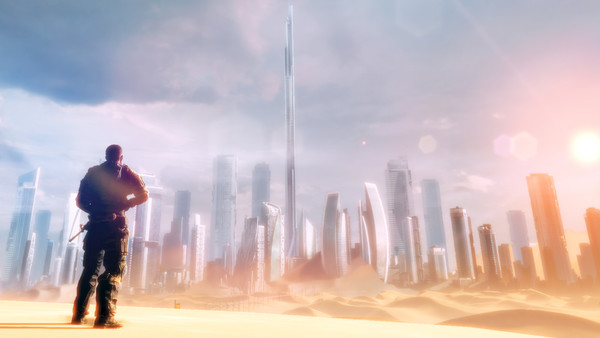No, We Won't Shut Up About Spec Ops: The Line
Must We Really Keep Moving?

"We need to keep moving" appears to be Captain Walker's mantra: a weak and hollow phrase he continually repeats to justify and rationalise his increasingly destructive actions. We first hear him say it after the first firefight with the Damned 33rd. He says it again after the team fail to rescue their apparent CIA ally, resulting in the likely deaths of more civilian refugees and eroding the trust of the men under his command. The third utterance occurs after the disastrous white phosphorus strike. He repeats the phrase several more times over the rest of the game. Ostensibly, it's an instruction to his men to keep them moving towards their objective, but it is in reality a reassurance to himself and by extension the player: that no matter how questionable and damaging his and our actions, the ends will eventually justify the means.
This is something the Call Of Duty series is frequently guilty of - trying to give an impression of nuance by presenting the characters' actions as morally questionable and complex. Unfortunately this rings hollow on almost every occasion. Whether detonating a nuclear device over Washington DC, subjecting adversaries to intense torture or carrying out no-knock raids in civilian neighbourhoods, valuable intel is gained or enemy forces are pushed back. The ends always justify the means, and our heroes remain the heroes of their stories. Nothing questionable about it.
Walker's decisions to keep moving, to make himself the hero of his own story, brings no such success. Every decision he makes only serves to inflame the situation further: opening fire on the Damned 33rd results in their failure to evacuate the civilians they were rounding up; his attempt to save CIA agent Gould is a failure; the decision to deploy white phosphorus on the outpost at the gate results in dozens of civilian casualties. Unlike what Call Of Duty would have us believe, pressing on no matter the cost will not go the way we think it will.
Even in those opening moments, less than a minute after we take control of Walker, a stop sign appears before the city skyline. It seems that sign was more than just a piece of set dressing.